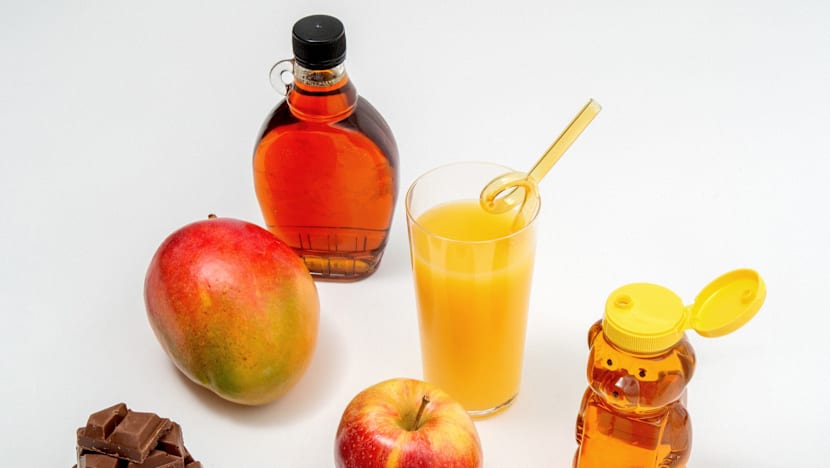Health
Experts Examine Health Impacts of Natural Sweeteners vs. Sugar

The health implications of various sweeteners have become a topic of intense discussion among nutritionists. Many people often wonder if sweeteners like honey, maple syrup, and agave nectar are healthier alternatives to refined sugars commonly found in processed foods. According to three nutrition experts, there is a significant difference between the sugars naturally present in fruits and vegetables and the added sugars often found in candies, sodas, and baked goods.
Understanding the impact of added sugars on health is crucial. The sugar found in fruits has the same basic components, such as glucose and fructose, as the sugar in a candy bar. Yet, the body processes these sugars differently due to the presence of fiber in whole foods. As noted by Karen Della Corte, an assistant professor of nutritional science at Brigham Young University, the fiber in fruits and vegetables slows digestion, preventing harmful spikes in blood sugar levels. In contrast, added sugars such as refined sugar and high-fructose corn syrup enter the bloodstream rapidly, leading to significant increases in blood sugar.
Frequent spikes in blood sugar can lead to insulin resistance, which may develop into Type 2 diabetes over time. Robert Lustig, an endocrinologist at the University of California, San Francisco, warns that excessive consumption of added sugars can prompt the liver to convert sugar into fat, accumulating in the liver and raising the risk of metabolic dysfunction-associated steatotic liver disease (MASLD), a chronic condition that can result in serious complications, including liver cancer and liver failure. Consequently, health authorities recommend limiting added sugars to no more than 50 grams per day, with the American Heart Association advising even stricter limits of 36 grams for men and 25 grams for women.
Despite the popularity of natural sweeteners, experts caution that they are still classified as added sugars. Kimber Stanhope, a nutrition researcher at the University of California, Davis, emphasizes that the body cannot differentiate between sugars from honey and those from table sugar or agave syrup; they are broken down into the same molecules. Thus, while some sweeteners are marketed as healthier alternatives, they can still pose health risks when consumed in excess.
The question of whether certain sweeteners are “less bad” than others has been the subject of numerous studies, many of which have received funding from industry stakeholders. For example, a study from 2024 funded by the maple syrup industry claimed that maple syrup might be better for blood sugar levels and heart health compared to table sugar. However, Stanhope raised concerns regarding the study’s methodology, suggesting it may have exaggerated the benefits of maple syrup.
Conversely, a smaller study from 2015, which received some funding from the honey industry, was well-designed and did not appear to compromise its findings. In this study, 55 adults consumed a mixture of water with honey, high-fructose corn syrup, or sucrose (table sugar) for two weeks, each containing 50 grams of added sugars. The results showed no significant differences in blood glucose, cholesterol, or inflammation levels, indicating that honey did not provide any health advantages over high-fructose corn syrup or table sugar.
For those considering alternatives to traditional sweeteners, options like aspartame, sucralose, stevia, or monk fruit are also under investigation for their potential health impacts. As the research continues, individuals are encouraged to seek out healthier ways to satisfy their sweet cravings. Incorporating naturally sweet fruits and vegetables, such as berries, apples, or roasted sweet potatoes, can be beneficial. If additional sweetness is desired, a small amount of sugar—like a drizzle of honey on apple slices—can be a reasonable choice, along with dark chocolate, which typically contains less added sugar than its milk chocolate counterpart.
As discussions regarding the health effects of various sweeteners evolve, it is important for consumers to remain informed and consider the broader context of their dietary choices.
-

 Lifestyle3 months ago
Lifestyle3 months agoHumanism Camp Engages 250 Youths in Summer Fest 2025
-

 Sports3 months ago
Sports3 months agoDe Minaur Triumphs at Washington Open After Thrilling Comeback
-

 Business4 months ago
Business4 months agoKenvue Dismisses CEO Thibaut Mongon as Strategic Review Advances
-

 Sports4 months ago
Sports4 months agoTupou and Daugunu Join First Nations Squad for Lions Clash
-

 Top Stories4 months ago
Top Stories4 months agoColombian Senator Miguel Uribe Shows Signs of Recovery After Attack
-

 Health3 months ago
Health3 months agoNew Study Challenges Assumptions About Aging and Inflammation
-

 World4 months ago
World4 months agoASEAN Gears Up for Historic Joint Meeting of Foreign and Economic Ministers
-

 Business4 months ago
Business4 months agoOil Prices Surge Following New EU Sanctions on Russia
-

 Entertainment4 months ago
Entertainment4 months agoDetaşe-Sabah Violin Ensemble Captivates at Gabala Music Festival
-

 Entertainment4 months ago
Entertainment4 months agoBaku Metro Extends Hours for Justin Timberlake Concert
-

 Business4 months ago
Business4 months agoU.S. House Approves Stablecoin Bill, Sends to Trump for Signature
-

 Top Stories4 months ago
Top Stories4 months agoRethinking Singapore’s F&B Regulations Amid Business Closures









